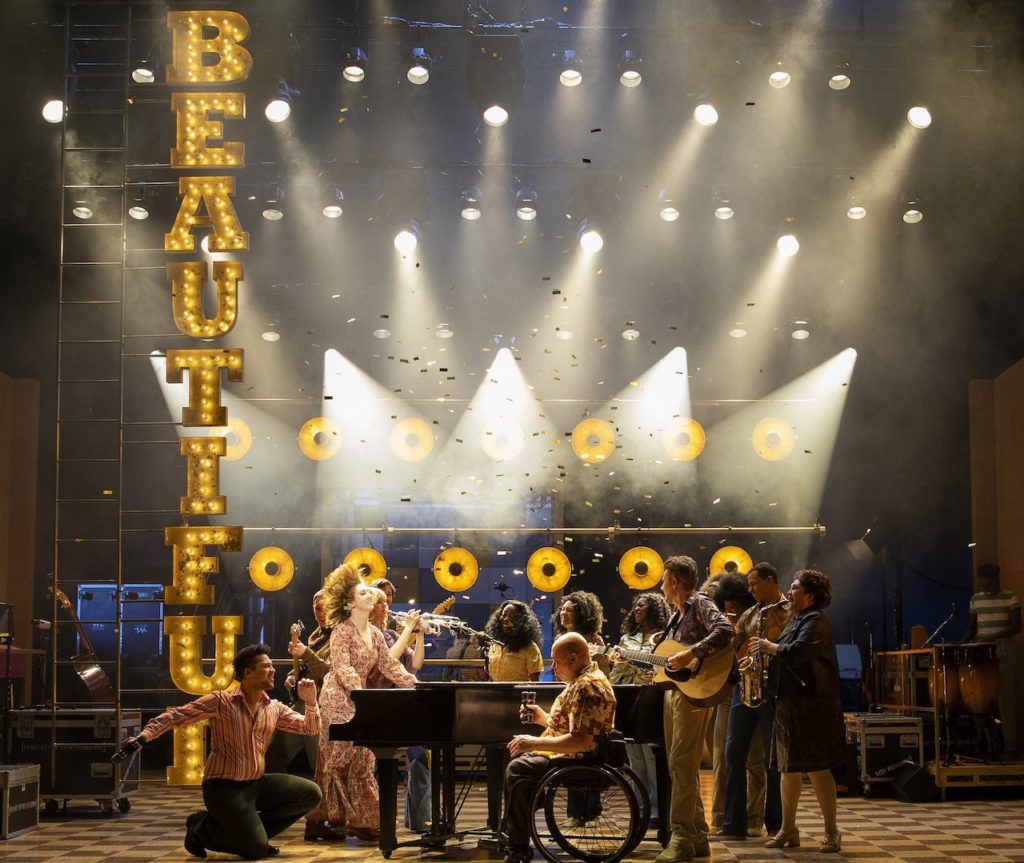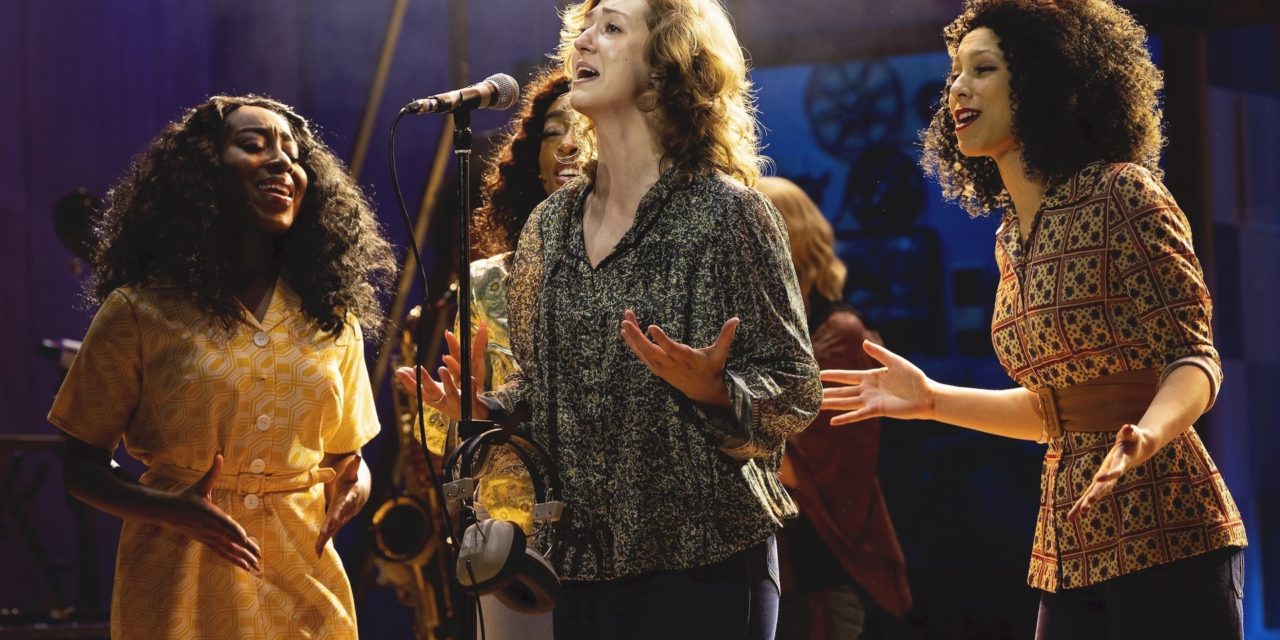
17 – 26 March
Directed by Nikolai Foster, Beautiful is a jukebox musical packed with great songs, and for those old enough to have lived in the times that it recalls, it’s packed with nostalgia too. I remember the very first time I played a record on a jukebox. It was 1960 and most of the music on offer was play-and-forget bubble gum pop, the kind dismissed in this show as having ‘lyrics that a dolphin could write’. But I chose to play Will You Still Love Me Tomorrow, and that song coupled an unforgettable melody with lyrics full of heartfelt poignancy. It remains a favourite to this day, as do many other songs penned by that prolific pair, Gerry Goffin and Carole King. Beautiful celebrates their achievements in a fast-paced and imaginatively staged show that inevitably brings the audience to their feet by the final number.
Largely centred on the story of Goffin and King’s partnership, both musical and domestic, there are strong performances from the entire cast. Molly-Grace Cutler is in splendid voice as Carole King, sensibly delivering a performance that steers clear of out-and out impersonation, but which skilfully captures the spirit of the original. Carole King’s friends and song-writing rivals are Cynthia Weill and Barry Mann. Seren Sandham-Davies endows Cynthia with an assertive self-confidence that contrasts nicely with Carole’s more shy and self-deprecating character, and Jos Slovick gets many of the best laughs in the show as the hypochondriac Barry. Among other highlights, there’s a splendid reincarnation of the Shirelles, choreographed by Leah Hill and dazzlingly costumed by Edd Lindley.
The Goffin and King professional partnership was extraordinarily successful, and this show delivers excellent performances of their greatest hits. Some of their songs are used to reflect upon their personal lives, as with Some Kind Of Wonderful, which features when Carole discovers that she is expecting a baby. Later, when Gerry sings Up On The Roof, a song about escaping the pressures of urban life, a parallel is drawn with his feelings of being trapped in his too early marriage to Carole.
In the first half the songs tend to swamp the story. Tom Milner conveys some sense that Gerry Goffin is a conflicted character, a would-be serious writer with the knack of writing song lyrics, but the difficulties he had wrestling with his inner demons are only briefly sketched in. The same is true of Carole’s childhood background, which is outlined largely in a series of wisecracking one-liners, as when her mother describes the end of her marriage with, ‘He called me unforgiving; I could never forgive him for that.’ Similarly, there is some brief reference to the misogyny that pervaded the music industry back then, but the line, ‘Girls don’t write music, they teach it’ hardly does justice to the formidable barriers that a female artist like King had to overcome. Before the interval, Beautiful features no less than eight songs performed in full, plus a medley of nine others. Given that the narrative also tells of Barry Mann and Cynthia Weill’s partnership, there is little room left for character development. The script is witty, but there’s always the sense that in just a moment another song will come along.
Thankfully, Beautiful finds more space to breathe after the interval, and the narrative is given more attention. We see Gerry’s descent into mental illness, and his final parting from Carole is conveyed with considerable emotional power. When she sings It’s Too Late, narrative and song combine very effectively, and with real pathos. Of course, Carole King went on to establish a very successful solo career with her award-winning album Tapestry. The finale, depicting her 1971 concert at Carnegie Hall, is joyously triumphant. Cue standing ovation!
★★★★☆ Mike Whitton 22nd March
Photo credit: Ellie Kurttz


